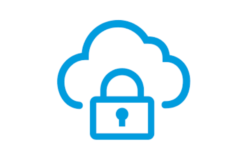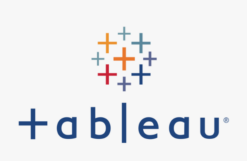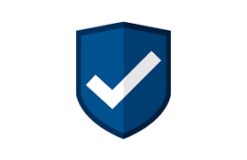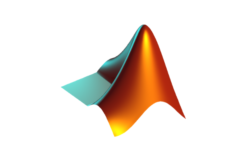Duration: 3 days – 21 hrs.
Overview
The MariaDB Administration training course is designed for individuals seeking to become proficient in administrating the MariaDB database server. This comprehensive course covers all the essential duties of a database administrator, providing participants with the knowledge and skills needed to effectively manage a MariaDB database.
Throughout the training, attendees will gain a deep understanding of how the MariaDB Database works, learn about the available tools and how to utilize them, explore server configuration and security, and master user account management. The course also delves into critical areas such as database maintenance, backup, recovery, and performance optimization.
Objectives
- Understand the fundamentals of MariaDB and its architecture.
- Learn to install and configure MariaDB on various operating systems.
- Acquire knowledge of MariaDB server configuration and security measures.
- Master user account management and access privilege system in MariaDB.
- Gain proficiency in database maintenance, backup, and recovery procedures.
- Explore log file management and running multiple MariaDB servers.
- Understand query caching and dynamic/virtual columns in MariaDB.
- Learn about performance optimization and usage statistics in MariaDB.
Audience
- Database Administrators: Individuals responsible for managing and maintaining databases in an organization, including installation, configuration, security, and performance optimization.
- IT Professionals: System administrators, IT managers, and technical staff who are involved in database management and want to enhance their skills specifically in MariaDB.
- Database Developers: Programmers and developers who work with MariaDB and want to gain a deeper understanding of database administration tasks.
- Software Engineers: Engineers involved in developing applications that utilize MariaDB and want to improve their knowledge of database administration for better application performance.
- System Analysts: Professionals responsible for analyzing and optimizing database systems, seeking to improve efficiency and reliability.
- Technical Managers: Managers and team leads who oversee database-related projects and want to grasp the essential concepts of MariaDB administration.
- Aspiring DBAs: Individuals aspiring to become database administrators and looking to build a solid foundation in MariaDB management.
Pre- requisites
- Basic understanding of databases and SQL concepts.
- Familiarity with Linux/Unix or Windows operating systems.
- Prior experience with relational database management systems is beneficial but not mandatory.
- Knowledge of command-line interface (CLI) usage is helpful.
- A desire to learn and administer MariaDB effectively.
Course Content
Installing MariaDB server
- Installing in Ubuntu/Debian
- Installing in other Linux Distributions
- Installation on Windows
MariaDB Server Files and Scripts
- MariaDB Programs
- MariaDB Server
- MariaDB Client
- GUI Tools
MariaDB Server Configuration
- Server Options
- The Server SQL Mode
- Server System Variables
- Dynamic System Variables
- Server Status Variables
- Shutdown Process
MariaDB Security Issues
- Securing MariaDB Against Attacks
- Security-Related Options
- Security Issues with LOAD DATA LOCAL
MariaDB Access Privilege System
- MariaDB Privilege System Overview
- Privileges Provided by MariaDB
- Connecting to the MariaDB Server – Stages
- Access Control, Stage 1: Connection Verification
- Access Control, Stage 2: Request Verification
- Access Denied Errors
MariaDB User Account Management
- Users and Passwords
- Creating New Users
- Deleting User Accounts
- Limiting User Resources
- Changing Passwords
MariaDB Database Maintenance
- Backup and Recovery
- Point-in-Time Recovery
- Maintenance and Crash Recovery
- myisamchk Syntax and Options
- Getting Table Information
- MariaDB Local Setting
- National Characters and Sorting
- MariaDB Server Time Zone
MariaDB Log Files
- Error Log
- General Query Log
- Update Log
- Binary Log
- Slow Query Log
- Log File Maintenance and Rotation
Running Multiple MariaDB Servers on the Same Machine
- Running Multiple Servers in Windows
- Running Multiple Servers in Windows as Services
- Running Multiple Servers in Unix and Linux
- Using Client Tools in a Multi-Server Environment
MariaDB Query Cache
- The Concept of Query Cache
- Testing Query Cache with SELECT
- Configuring Query Cache
- Checking Query Cache Status and Maintenance
The CONNECT Storage Engine
- Installing the CONNECT storage engine
- Creating and dropping CONNECT tables
- Reading and writing CSV data using CONNECT
- Reading and writing XML data using CONNECT
- Accessing MariaDB tables using CONNECT
- Using the XCOL table type
- Using the PIVOT table type
- Using the OCCUR table type
Exploring Dynamic and Virtual Columns in MariaDB
- Creating tables with dynamic columns
- Inserting, updating, and deleting dynamic column data
- Reading data from a dynamic column
- Using virtual columns
Performance and Usage Statistics
- Installing the Audit Plugin
- Using the Audit Plugin
- Using engine-independent table statistics
- Using extended statistics
- Enabling the performance schema
- Using the performance schema
Optimizing and Tuning MariaDB
- Using SHOW STATUS
- Controlling MariaDB optimizer strategies
- Using extended Keys with InnoDB and XtraDB
- Configuring the MyISAM segmented key cache
- Configuring threadpool
- Configuring the Aria pagecache
- Optimizing queries with the subquery cache
- Optimizing semijoin subqueries
- Using microseconds in DATETIME columns
- Updating the DATETIME and TIMESTAMP columns automatically








